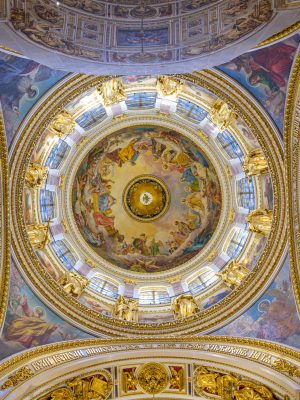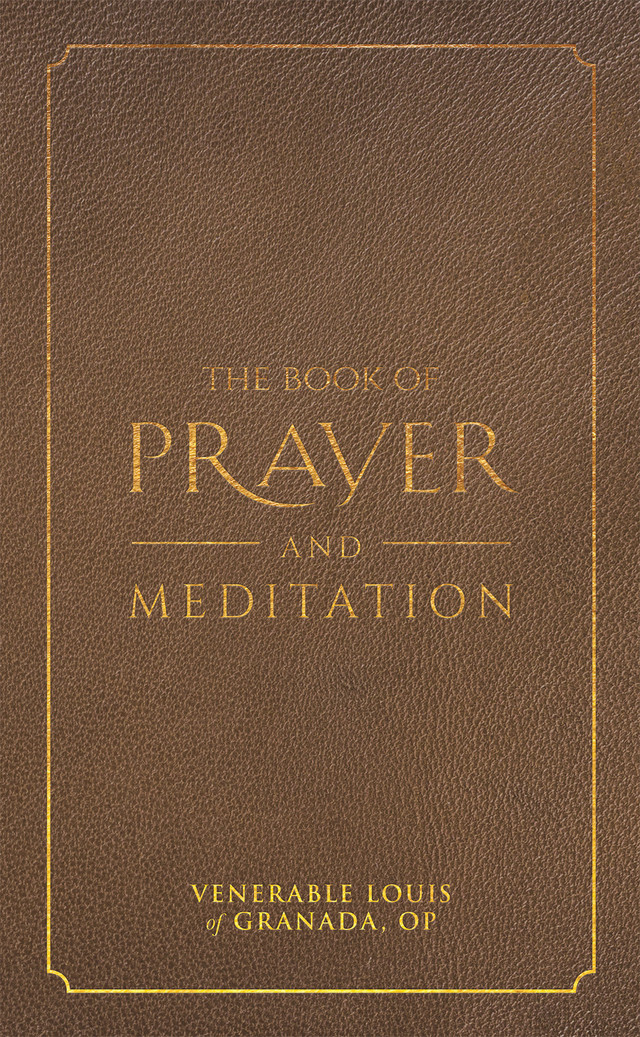The broken world we live in is filled with misery. We live in this valley of tears pilgrimaging for our heavenly home. Reflection upon these miseries can help us detach ourselves from this fleeting world and set our hearts upon Heaven.
THIS day (when thou hast made the sign of the Cross, and prepared thyself,) thou hast to meditate upon the condition, and miseries of this life: that thou mayest by them understand, how vain the glory of this world is, seeing it is built upon so weak a foundation: and how little accompt a man ought to make of himself, being (as he is subject) unto so many miseries.
Now for this purpose thou hast to consider first of the vileness of the original, and birth of man, to wit: the matter whereof he is compounded: the manner of his conception: the griefs, and pains of his birth: the frailty, and miseries of his body: according as hereafter shall be entreated.
Then thou hast to consider the great miseries of the life that he liveth, and chiefly these seven.
First Consideration
First, consider how short this life is, seeing the longest term thereof passeth not threescore and ten, or fourscore years. For all the rest (if any man’s life be drawn a little longer) is but labor, and sorrow. And if thou take out of this the time of our infancy, which is rather a life of beasts, than of men and withal the time that is spent in sleeping, at which time we have not the use of our senses, and reason, thou shalt find that our life is a great deal shorter, than it seemeth unto us. Besides all this, if thou compare this life with the eternity of the life to come, that endureth for evermore, it shall scarcely seem so much as a minute: Whereby thou mayest perceive, how far out of the way those persons are, who to enjoy the little blast of so short a life, do hazard to lose the quiet rest of the blessed life to come, which shall endure everlastingly.
Second Consideration
Secondly, consider how uncertain this life is, (which is an other misery besides the former.) For it is not only of itself very short, but even that very small continuance of life that it hath, is not assured, but doubtful. For how many (I pray thee) do come to the age of those threescore and ten, or fourscore years, which we spake of? In how many persons is the web cut off, even at the first, when it is scarcely begun to be woven? How many do pass away out of this world, even in the flower (as they term it) of their age, and in the very blossoming of youth. Ye know not (saith our Savior) when our Lord will come, whether in the morning, or at noonday, or at midnight, or at the time of the cock crowing: That is to say: Ye know not whether he will come in the time of infancy, or of childhood, or of youth, or of age. For the better perceiving of this point, it shall be a good help unto thee to call to mind, how many of thy friends and acquaintances are dead, and departed out of this world. And especially remember thy kinsfolk, thy companions, and familiars, and some of the worshipful and famous personages of great estimation in this world, whom death hath assaulted, and snatched away in divers ages, and utterly beguiled, and defeated them of all their fond designments, and hopes. I know a certain man, that hath made a memorial of all such notable personages, as he hath known in this world in all kind of estates, which are now dead: and some times he readeth their names, or calleth them to mind: and in rehearsal of every one of them, he doth briefly represent before his eyes the whole tragedy of their lives, the mockeries, and deceits of this world, and withal the conclusion and end of all worldly things.
Third Consideration
Thirdly, consider how frail, and brickle this life is, and thou shalt find, that there is no vessel of glass so frail as it is. Insomuch as a little distemperature of the air, or of the sun, the drinking of a cup of cold water, yea the very breath of a sick man is able to spoil us of our life, as we see by daily experience of many persons, whom the least occasion of all these that we have here rehearsed, hath been able to end their lives, and that even in the most flourishing time of all their age.
Fourth Consideration
Fourthly, consider how mutable and variable this life is, and how it never continueth in one self same stay. For which purpose thou must consider the great and often alterations, and changes of our bodies, which never continue in one same state, and disposition. Consider likewise, how far greater the changes, and mutations of our minds are, which do ever ebb and flow like the Sea, and be continually altered and tossed with divers winds, and surges of passions, that do disquiet, and trouble us every hour.
Finally, consider how great the mutation in the whole man is, who is subject to all the alterations of fortune, which never continueth in one same being, but always turneth her wheel, and rolleth up and down from one place to an other. And above all this, consider how continual the moving of our life is, seeing it never resteth day, nor night, but goeth always shortening from time to time, and consumeth itself like as a garment doth with use, and approacheth every hour nearer and nearer unto death. Now by this reckoning what else is our life, but as it were a candle that is always wasting, and consuming, and the more it burneth, and giveth light, the more it consumeth and wasteth away? What else is our life, but as it were a flower, that buddeth in the morning, and fadeth away at noon day, and at evening is clean dried up? This very comparison maketh the Prophet in the Psalm, where he saith.
Fifth Consideration
Fifthly, consider how deceitful our life is (which peradventure is the worst property it hath.) For by this mean it deceiveth us, in that being in very deed filthy, it seemeth unto us beautiful: and being but short, every man thinketh his own life will be long: and being so miserable (as it is in deed) yet it seemeth so amiable, that to maintain the same, men will not stick to run through all dangers, travails, and losses, (be they never so great,) yea they will not spare to do such things for it, as whereby they are assured to be damned for ever and ever in hell fire, and to lose life everlasting.
Sixth Consideration
Sixthly, consider how besides this that our life is so short (as hath been said,) yet that little time we have to live is also subject unto divers and sundry miseries, as well of the mind, as of the body: insomuch as all the same being duly considered, and laid together is nothing else, but a vale of tears, and a main Sea of infinite miseries.
Consider also all the diseases and calamities that may happen to men’s bodies, and withal all the afflictions, and cares of the mind. Consider likewise the dangers, and perils, that be incident as well to all estates, as also to all the ages of men: and thou shalt see very evidently the manifold miseries of this life. By the seeing whereof thou shalt perceive how small a thing all that is, that the world is able to give thee, and this consideration may cause thee more easily to despise and contemn the same, and all that thou mayest hope to receive from it.
Seventh Consideration: The Final Misery
After all these manifold miseries, and calamities, there succeedeth the last misery, that is death, which is as well to the body, as to the soul, of all terrible things the very last, and most terrible. For the body shall in a moment be spoiled of all that it hath. And of the soul there shall then be made a resolute determination what shall become of it for ever, and ever.
ooo
This article is taken from a chapter in The Book of Prayer and Meditation by Venerable Louis of Granada which is available from TAN Books.








